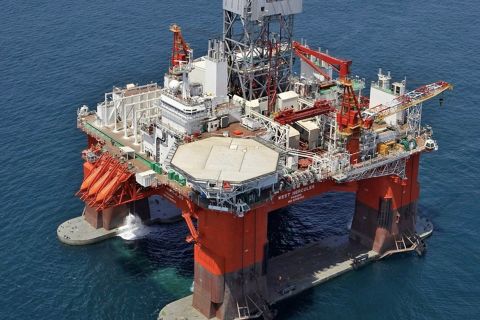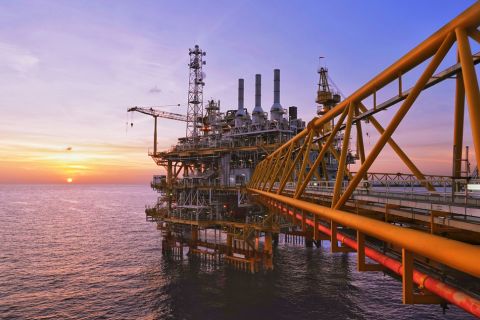Mexican state oil company Pemex, hammered by a collapse in crude prices and a sharp depreciation of the Mexican peso, on April 30 posted a multibillion-dollar quarterly loss that was far wider than losses a year earlier.
Losses during the first quarter of 2020 totaled $23.6 billion (562.13 billion peso), likely the company's biggest ever quarterly loss as the COVID-19 pandemic cratered demand for crude oil globally.
Pemex faces struggles on numerous fronts, from sky-high debts to the government's determination to ramp up its money-losing refining business, including building a new $8 billion refinery.
RELATED:
The first-quarter loss far exceeded the 35.7 billion peso loss during the January-March period last year.
Pemex CFO Alberto Velazquez blamed the pandemic's economic fallout, calling them "serious but temporary" in an analyst call after the results were published.
Pemex "will continue with the best operational and financial [plans] implemented since the beginning of this administration," he said, referring to the term of President Andres Manuel Lopez Obrador, which began in late 2018.
Velazquez stressed the "absolute" financial backstop provided by the government, and said Pemex had stabilized crude production, which together with condensate output averaged 1.74 million bbl/d during the quarter.
He touted recently announced government support for the company this year, including tax breaks, budget and pension measures totaling about $6.5 billion.
Slumping prices dropped quarterly revenue to 284.1 billion pesos, down a fifth from the first quarter of 2019.
The peso currency, meanwhile, weakened by more than 25% in January to March, its deepest quarterly fall since 1995.
Total financial debt at the end of March stood at $104.8 billion, the company said, slightly down from 2019 levels but still the most debt of any oil company in the world.
Royal Dutch Shell, the most indebted private oil company, had a total debt of $68.8 billion at the end of the first quarter.
Earlier this month, Moody's became the second major credit rating agency to cut Pemex debt to junk status, saying policy choices by Lopez Obrador have been "insufficient to effectively address both the country's economic challenges and Pemex's continued financial and operating problems."
Velazquez said the goal for this year is zero net debt.
Lopez Obrador has pledged to revive Pemex and bolster Mexico's energy independence, in part by weaning the country off of mostly U.S. fuel imports, and refining more at home.
While Pemex said it processed 542,000 bbl/d of crude at its domestic refineries during the quarter, Lopez Obrador has set a goal of refining a million barrels daily by May.
Velazquez said the Mexican oil giant could weather low prices thanks largely to relatively low production costs at just above $14/bbl.
According to S&P Platts data, Pemex's flagship Maya heavy crude averaged about $28/bbl during the first quarter.
Pemex, formally known as Petroleos Mexicanos, said in a letter to investors this week that in response to lower prices it would a cut its 2020 investment budget, which executives said on Thursday totaled nearly $2 billion.
The already-implemented cut comes overwhelmingly from the company's exploration and production arm but protects its most profitable projects, Velazquez explained.
Chris Sladen, a former Mexico-based oil executive with decades of experience in the industry, described the quarterly result as "very disturbing" and calculated the loss at $10 million per hour during the three month period.
"Few companies can survive this level of losses without structural changes," he added.
($1 = 23.7980 pesos at end-March)
Recommended Reading
US Drillers Add Oil, Gas Rigs for Second Week in a Row
2024-01-26 - The oil and gas rig count, an early indicator of future output, rose by one to 621 in the week to Jan. 26.
Second Light Oil Discovery in Mopane-1X Well
2024-01-26 - Galp Energia's Avo-2 target in the Mopane-1X well offshore Namibia delivers second significant column of light oil.
CNOOC Sets Increased 2024-2026 Production Targets
2024-01-25 - CNOOC Ltd. plans on $17.5B capex in 2024, with 63% of that dedicated to project development.
E&P Highlights: Jan. 29, 2024
2024-01-29 - Here’s a roundup of the latest E&P headlines, including activity at the Ichthys Field offshore Australia and new contract awards.
Seadrill Awarded $97.5 Million in Drillship Contracts
2024-01-30 - Seadrill will also resume management services for its West Auriga drillship earlier than anticipated.




